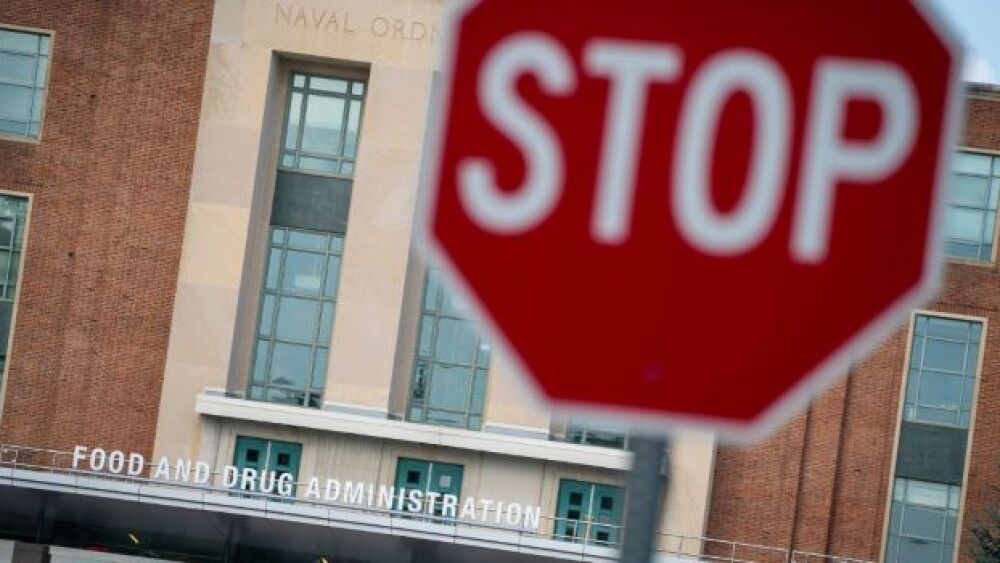The FDA cited data demonstrating that both treatments are not likely to be potent against omicron and should not be authorized for use in any U.S. state, territory, and jurisdiction for the time being.
Sarah Silbiger/Getty Images
The U.S. Food and Drug Administration has amended the authorization of two monoclonal antibody treatments for COVID-19 after data showed they are not effective against the omicron variant, which is responsible for almost all active cases in the country today.
Regeneron’s REGEN-COV (casirivimab and imdevimab combination) and Eli Lilly’s bamlanivimab and etesevimab (given together) have been scaled back to be administered conditionally and only to patients who have been exposed to other susceptible non-omicron COVID-19 variants.
In its statement, the FDA cited data demonstrating that both treatments are not likely to be potent against omicron and should not be authorized for use in any U.S. state, territory or jurisdiction for the time being. The regulator argued that monoclonal antibodies are laboratory-designed proteins that mimic the immune system’s action against viruses. Because SARS-CoV-2 has shown rapid mutation capabilities, monoclonal treatments will be unfit for the changes.
The decision earned support from the National Institutes of Health’s COVID-19 Treatment Guidelines Panel, which also recommended that both products be stopped for now, especially as it’s not feasible to keep conducting real-time tests to identify whether a variant is of omicron or not. The panel is composed of independent national health and public policy experts.
Both agencies also highlighted the high availability of other modes of treatment, such as molnupiravir, sotrovimab, remdesivir and Paxlovid, which have been proven to have the capacity to combat the virus. If the two therapies eventually prove effective against any future variants that might come after omicron, the FDA said it is open to reissuing authorization.
According to the Centers for Disease Control and Prevention (CDC), the omicron strain currently accounts for over 99% of cases in the country. Given these figures, the FDA said that it is unlikely that patients seeking care for their symptoms will be of any other virus variant.
“These treatments are not authorized to be used at this time. This avoids exposing patients to side effects, such as injection site reactions or allergic reactions, which can be potentially serious, from specific treatment agents that are not expected to provide benefit to patients who have been infected with or exposed to the omicron variant,” the FDA said in its press release.
“While it’s critical that we have ways to treat those who contract COVID-19, the authorized treatments are not a substitute for vaccination in individuals for whom COVID-19 vaccination and a booster dose are recommended,” added the agency.
Both Eli Lilly and Regeneron have previously announced that they are working on new antibody treatments that target omicron. Speaking to reporters in December, Regeneron chief executive Leonard Schleifer said that they are hoping to begin clinical trials for this initiative within Q1 2022. Eli Lilly also revealed early this month that it has already started laboratory testing.





